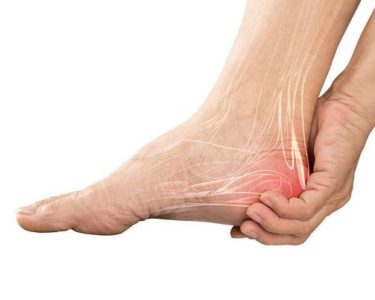Peripheral neuropathy is a common complication of diabetes, characterized by nerve damage that often results in pain, tingling, or numbness in the extremities. Managing diabetes effectively is essential to prevent or reduce the impact of this condition. One way to protect your nerves and overall health is through proper nutrition. The top foods that can help safeguard your nerves and manage peripheral neuropathy linked to diabetes.
What is Peripheral Neuropathy and Diabetes?
Peripheral neuropathy and diabetes are closely intertwined medical conditions that significantly affect millions of individuals worldwide. Understanding their connection is crucial for effective management and improved quality of life. What peripheral neuropathy is, how it relates to diabetes, its symptoms, causes, and available treatments.

Understanding Peripheral Neuropathy
Peripheral neuropathy is a condition that results from damage to the peripheral nerves, which are responsible for transmitting signals between the central nervous system (the brain and spinal cord) and the rest of the body. These nerves control various functions, including sensation, movement, and autonomic functions such as heart rate and digestion. When these nerves are damaged, they can cause a range of symptoms, including:
Related Articles: Say Goodbye to Peripheral Neuropathy Pain: Effective Treatments You Need to Know
- Numbness or tingling in the hands and feet.
- Sharp, burning, or throbbing pain.
- Muscle weakness.
- Loss of coordination and balance.
- Sensitivity to touch or temperature changes.
The Link Between Peripheral Neuropathy and Diabetes
Diabetes is one of the leading causes of peripheral neuropathy. In fact, diabetic peripheral neuropathy (DPN) is one of the most common complications of both type 1 and type 2 diabetes. High blood sugar levels over time can damage the walls of small blood vessels that supply nerves with oxygen and nutrients. This damage leads to impaired nerve function and, eventually, peripheral neuropathy.
Related Articles: Effective Ways to Recovery of Peripheral Neuropathy with Home Remedies
Risk Factors for Diabetic Peripheral Neuropathy
Several factors increase the likelihood of developing peripheral neuropathy in the context of diabetes, including:
- Prolonged Hyperglycemia: Chronic high blood sugar levels are the primary cause of nerve damage.
- Duration of Diabetes: The longer a person has diabetes, the greater the risk of developing neuropathy.
- Poor Glycemic Control: Inadequate management of blood sugar levels accelerates nerve damage.
- Lifestyle Factors: Smoking and excessive alcohol consumption can worsen neuropathy.
- Obesity: Being overweight puts additional stress on nerves and blood vessels.
Symptoms of Diabetic Peripheral Neuropathy
Symptoms of DPN often start gradually and worsen over time. Common signs include:
- Tingling or burning sensations in the extremities, particularly at night.
- Loss of sensation in the feet and hands.
- Sharp or jabbing pain.
- Muscle weakness or cramping.
- Difficulty walking due to balance issues.
- In severe cases, foot ulcers or infections due to unnoticed injuries.
Top Foods to Protect Your Nerves
Your nervous system is the body’s communication network, responsible for transmitting signals between the brain, spinal cord, and other areas. Protecting this intricate system is vital for overall well-being. A healthy diet can play a crucial role in maintaining nerve health. Here’s a look at the top foods that can protect your nerves and support a resilient nervous system.

- Leafy Greens Rich in antioxidants, vitamins, and minerals, leafy greens such as spinach, kale, and Swiss chard combat oxidative stress and inflammation. They’re also high in magnesium, which supports nerve function and improves blood sugar control.
- Fatty Fish Fatty fish like salmon, mackerel, and sardines are excellent sources of omega-3 fatty acids. These healthy fats reduce inflammation and promote nerve regeneration. Omega-3s also improve heart health, which is crucial for maintaining proper circulation.
- Nuts and Seeds Almonds, walnuts, flaxseeds, and chia seeds are packed with healthy fats, magnesium, and fiber. These nutrients play a critical role in maintaining nerve health and managing blood sugar levels.
- Whole Grains Whole grains such as quinoa, brown rice, and oats provide complex carbohydrates, which stabilize blood sugar levels. They are also rich in B vitamins, especially B6 and B12, which are vital for nerve repair and regeneration.
- Berries Blueberries, strawberries, and raspberries are loaded with antioxidants that help reduce oxidative stress. These fruits also have anti-inflammatory properties and are low on the glycemic index, making them a smart choice for blood sugar management.
- Legumes Beans, lentils, and chickpeas are high in fiber and protein, which help regulate blood sugar levels. They’re also a good source of folate, a nutrient that supports nerve function.
- Avocados Avocados are rich in healthy monounsaturated fats, potassium, and fiber. These nutrients help lower inflammation and stabilize blood sugar levels, providing a protective effect for the nerves.
- Turmeric Turmeric contains curcumin, a compound with powerful anti-inflammatory and antioxidant properties. Adding turmeric to your meals can help reduce nerve pain and promote healing.
- Dark Chocolate Dark chocolate with at least 70% cocoa is rich in antioxidants known as flavonoids. These compounds improve blood flow and reduce inflammation, benefiting nerve health. Enjoy it in moderation to avoid excess sugar intake.
- Green Tea Green tea is a great source of antioxidants that reduce oxidative stress and inflammation. It also contains compounds that may help regulate blood sugar levels.
Related Articles: 10 Natural Remedies for Peripheral Neuropathy
Additional Tips for Nerve Health
Maintaining healthy nerves is essential for overall well-being, as nerves play a critical role in transmitting signals between the brain, spinal cord, and the rest of the body. Damage to the nervous system can lead to various issues, including numbness, tingling, pain, and even impaired mobility. While a balanced diet and regular exercise are foundational, there are additional steps you can take to support optimal nerve health. Here are some practical tips to enhance your nervous system’s resilience and functionality:
1. Incorporate Nerve-Boosting Nutrients
Certain vitamins and minerals are particularly beneficial for nerve health:
- Vitamin B12: Helps maintain the myelin sheath that protects nerve fibers. Foods rich in B12 include fish, eggs, and fortified cereals.
- Magnesium: Essential for nerve function and muscle relaxation. Sources include leafy greens, nuts, and seeds.
- Omega-3 Fatty Acids: Found in fatty fish like salmon, these fatty acids promote nerve repair and reduce inflammation.
- Alpha-Lipoic Acid (ALA): Known for its antioxidant properties, ALA helps protect nerves from oxidative stress.
2. Stay Hydrated
Dehydration can impair nerve function. Aim to drink at least 8-10 glasses of water daily and avoid excessive consumption of dehydrating beverages like coffee and alcohol.
Related Articles: Treatment for Peripheral Neuropathy by Natural Herbal Remedies
3. Practice Stress Management
Chronic stress can harm your nervous system. Engage in activities that reduce stress, such as:
- Meditation and Mindfulness: These practices help calm the mind and reduce anxiety.
- Yoga: Combines physical poses, breathing techniques, and meditation for holistic relaxation.
- Deep Breathing Exercises: Helps activate the parasympathetic nervous system, promoting a state of relaxation.
4. Maintain Proper Posture
Good posture minimizes strain on your nerves, especially those in your spine. Ensure your workstation is ergonomically designed, and avoid slouching when sitting or standing for long periods.
5. Get Regular Physical Activity
Exercise improves blood circulation, which delivers essential nutrients to your nerves. Activities like walking, swimming, or light strength training are particularly beneficial. For those with existing nerve issues, consult a healthcare professional to determine safe exercise routines.
6. Avoid Toxins
Certain substances, such as heavy metals and excessive alcohol, can damage nerves. Limit exposure to toxins by:
- Choosing organic produce when possible.
- Using non-toxic cleaning and personal care products.
- Avoiding excessive alcohol consumption.
7. Consider Supplements
If dietary intake is insufficient, Peripheral Neuropathy Herbal Supplement can help. Some popular options for nerve health include:
- Vitamin B Complex: Supports overall nerve function.
- Curcumin: Found in turmeric, curcumin has anti-inflammatory and antioxidant properties.
- Acetyl-L-Carnitine: May improve nerve repair and reduce pain.
8. Improve Sleep Hygiene
Adequate sleep is essential for nerve repair and overall health. To enhance sleep quality:
- Maintain a consistent sleep schedule.
- Create a relaxing bedtime routine.
- Keep your bedroom cool, dark, and quiet.
9. Quit Smoking
Smoking reduces blood flow to nerves, which can impair their functionality. Quitting smoking not only benefits nerve health but also improves overall cardiovascular health.
10. Seek Regular Checkups
Regular medical checkups can help identify potential nerve-related issues early. If you experience persistent symptoms like tingling, numbness, or weakness, consult a neurologist or healthcare provider for proper evaluation and treatment.
By integrating these tips into your daily routine, you can promote healthier nerves and enjoy a better quality of life. Remember that consistency is key, and even small changes can make a significant difference over time.
Conclusion
Peripheral neuropathy and diabetes can significantly impact your quality of life, but incorporating nerve-friendly foods into your diet can make a difference. By choosing nutrient-rich options like leafy greens, fatty fish, and whole grains, you can protect your nerves, manage blood sugar levels, and improve overall health. Remember, a balanced diet combined with regular exercise and medical guidance is key to managing diabetes and its complications effectively.




